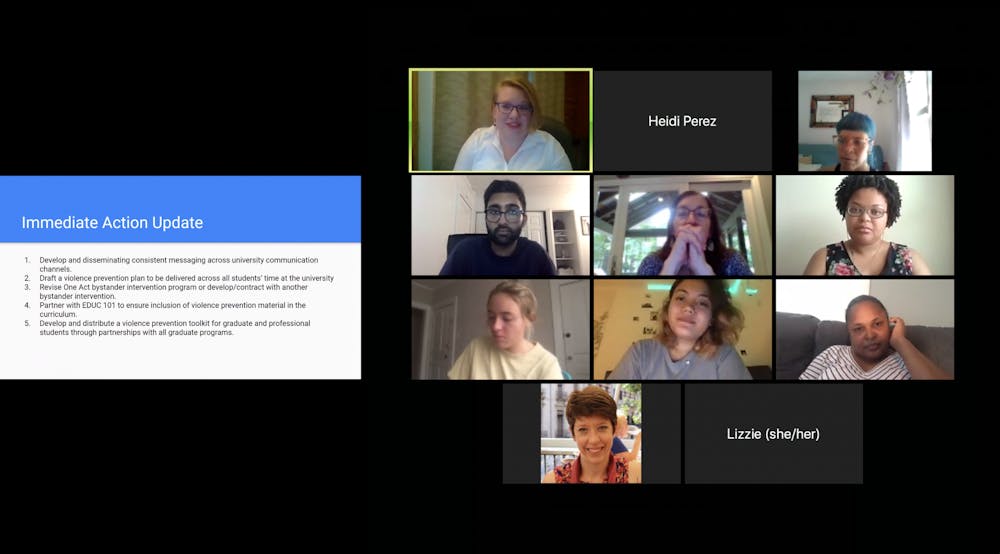UNC will provide amnesty to people who report incidents of sexual violence that occurred during violations of COVID-19 guidelines this semester, said Rebecca Gibson, a report and response coordinator at the Equal Opportunity and Compliance Office at a meeting of the Gender-Based Violence Prevention Advisory Group.
The group met Thursday morning to draft immediate and long-term solutions to sexual violence among students, faculty and employees at UNC. This marks the group's second general meeting of the fall semester after its creation this year.
Members discussed plans to host a survivor space to get feedback from student organizations and activists that are working to prevent sexual violence on campus, as well as a campus-wide event later on.
One of the group’s main focuses is ensuring UNC adapts to the Department of Education’s changes to Title IX legislation, which were released in May.
By the end of the semester, members hope to publish an initial draft of their updates to UNC’s Prevention Task Force Report — a series of guidelines and recommendations first released in 2017 aimed at preventing sexual violence on campus.
“It may seem a little challenging and hopeless based on history and how we know things on culture, but I have a little bit of optimism,” said Human Development and Family Studies Program Director Helyne Frederick. “...(the) timing is good to cause some disruption.”
Student members said that — in order to implement concrete change — campus culture must shift dramatically and the University’s administration needs to provide more resources and programs to marginalized groups on campus.
“Without the administration being like ‘There seriously does need to be a culture change and a culture shift and a shift in the way we also think about these issues,’ I think a lot of the changes will be surface-level,” Shareen El Naga, a senior majoring in political science, said. “Even if there are changes, I find it hard to accept that they will make a big change without those other things moving or shifting in place.”
Frederick, in agreement, said several of her Latinx and Black colleagues feel “tired” and “hopeless” in response to issues at UNC that have been left unattended or unresolved.




